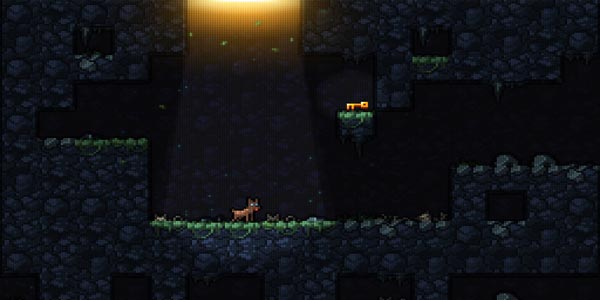The first time I encountered Ludum Dare was when Notch, known for his work on Minecraft, decided to participate. It gives participants a theme, and they have to furiously code with a time limit of 48 hours to make a game that matches that theme. Once the 48 hours are over and the games are turned in, anyone can vote on factors such as Innovation, Fun, Graphics, and Audio (among others). It’s an interesting exercise that attracts game coders from all levels, but it also teaches a lot about what gaming is really about.
1. Time Doesn’t Equal Quality
It is both fortunate and unfortunate that effort does not equal quality. Many AAA games put years of work into their games, and while they may be stunning in some aspects, they’re lacking in actual gameplay. On the other hand, some of these small games made in just 48 hours are incredibly fun, introduce many different mechanics throughout the game, or look visually stunning. When you find a gem in the Ludum Dare library, its only fault is usually (and understandably) the length of the game. If a programmer is lucky or clever enough, they can do what experts can’t in just 48 hours—create a really awesome concept. It only takes a single instant and little effort at all for inspiration to hit a programmer. And from there on, only the coding stands in the way of a good game.
2. You Don’t Need to Win to Have Fun
Browsing through the games of Ludum Dare, I quickly noticed a trend. They were either ridiculously hard, with precise jumps or actions required on the part of the user, or they were impossible to beat at all. Some of them were full of glitches, but these only became obstacles to overcome. In the few cases I did win, I ended up replaying just to see if I could do better. Despite frequently losing, the games kept their charm. The actual experience of playing them tends to be their best trait, not the accomplishment of beating them.
3. Graphics Don’t Matter
As I mentioned in the last point, glitches don’t impede on gameplay when you start to expect them. But along with that, I noticed that many of the graphics of the winning games were either crude or barely passable. Sometimes there would be no sound effects at all—or very horrible ones—and the games still scored well and were incredibly fun to play. Obviously graphics are a necessity—unless you’re playing a text game, you need to see what you’re doing—but on the indie scene, they’re less likely to attract players who look at other gaming factors.
4. No Such Thing as Simple Game Mechanics
Many of the games started off will a simple, stereotypical premise—you shoot a gun, you collect the MacGuffins, you survive to the finish, or you gather resources. And yet they all became more complicated as time goes on, elaborating on one simple mechanic and exploring the different possibilities of it. Since the coders have a limited amount of time and don’t have to worry about a longer game, they can freely explore different aspects of a single mechanic without tiring it out. That said, the concepts they come up with usually start out simple and elaborate into something intriguing that are their own concepts, incomparable to other games. This diversification of a simple concept is a wonderful way to propel a user through a game and greatly contributes to the ‘fun’ factor.
5. Character is Key
That being said, I did a little study of the winning results of the Ludum Dare Competition. I wanted to see what aspect was the most important to gamers, and what propelled most of the people to the top. The answer is how Fun a game is. Most of the participants who won overall also topped the Fun category. They may have done poorly on audio, theme, graphics, or otherwise—but it was very rare for a game that didn’t score well in Fun to do well overall. Even with amazing graphics, they weren’t guaranteed a spot on the top 5. Innovation was the second most important factor, though by a wide margin. The importance of the gameplay and the actual fun in Ludum Dare is a testament to the honest goal of gamers: simply, to have fun. Stripped of all of the fancy engines, graphics, audio, and even their own theme, the games that were the most fun won in the end. And that’s a very good prospect as all of these programmers take their step into the world of gaming.

0 Comments